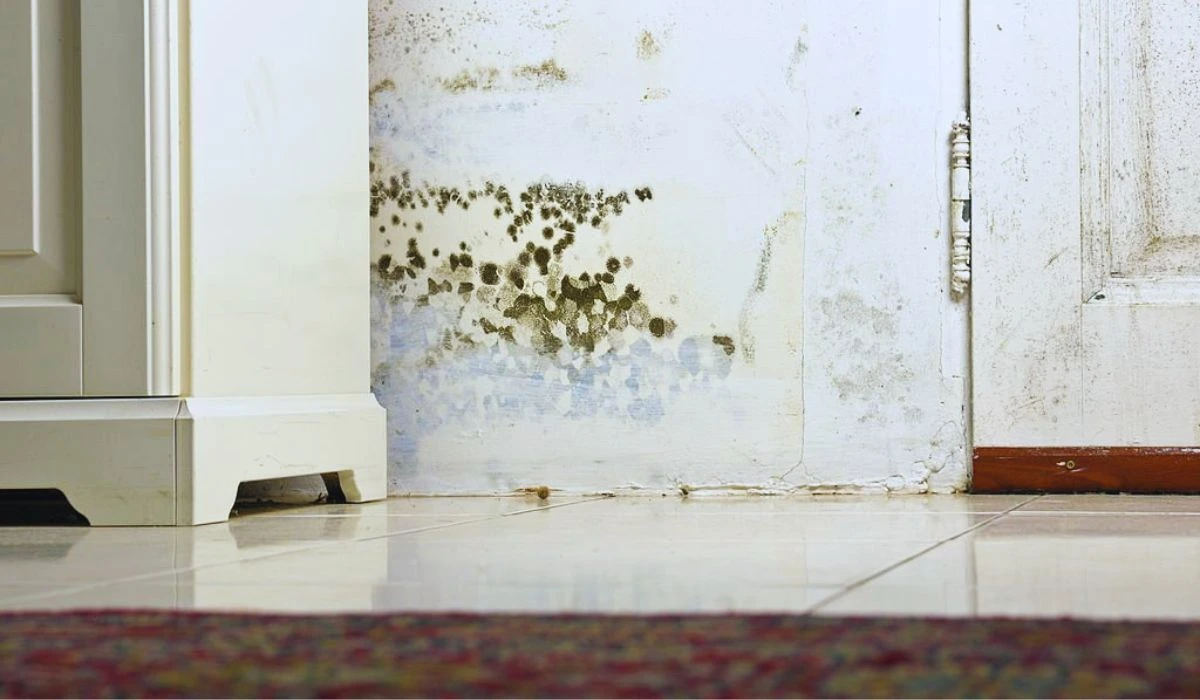Hey there, folks! Today, we’re delving into a rather unpleasant topic that could affect your life more than you realize: mold toxicity. You see, mold isn’t just that unsightly stuff creeping up on your walls; it can be a silent health hazard. So buckle up as we explore the ten warning signs that mold might be playing hide and seek in your home.
Warning Signs Of Mold Toxicity
The presence of poisonous mold can cause a variety of symptoms. You should be aware of these symptoms so that you may take steps to address a probable mold problem, eliminate the source of exposure, and seek medical attention as necessary.

The most prevalent symptoms that the body is experiencing damage from mold toxins will be discussed in this article. The key to reducing health consequences is prompt recognition of these signs.
🔸 Musty Odors: The First Clue
Ever caught a whiff of your home smelling like a musty attic or old gym socks? If so, that’s often your first clue that mold might be your uninvited guest. Mold has a knack for producing a distinct and unpleasant odor that can serve as a red flag.
🔸 Allergies On The Rise
Are your allergies acting up like they’re training for a marathon? Mold spores have this uncanny ability to kickstart your allergies, causing sneezing, a runny nose, itchy eyes, and all the classic allergy symptoms. If you find yourself sneezing more indoors than outdoors, it might be time to give mold a second thought.
🔸 Respiratory Distress: Is Mold The Culprit?
Mold isn’t just a visual nuisance; it can mess with your respiratory system too. Coughing, wheezing, and struggling to catch your breath? If these symptoms worsen at home, mold could very well be the bad guy here.
🔸 Skin Irritation And Rashes
Mold toxins can even wage war on your skin. If you’ve been battling mysterious skin irritations, redness, or rashes, take your detective hat and start investigating mold in your surroundings.
🔸 Unexplained Fatigue
Feeling like a zombie even after a full night’s sleep? Mold toxicity can drain your energy faster than a toddler with a sugar rush. So, don’t forget to add mold exposure to your list of suspects if you’re constantly running on empty.
🔸 Persistent Headaches: A Silent Warning
Headaches, anyone? Sometimes, those persistent headaches you are experiencing are like silent alarms for mold toxicity. Especially if they seem to have a special affinity for your home environment.
🔸 Cognitive Issues: Brain Fog And Memory Problems
Mold exposure can make your brain feel like it’s wading through a foggy swamp. If concentrating or remembering things has become your Everest, it might be time to check for mold.
🔸 Digestive Troubles: More Than Meets The Eye
Nausea, diarrhea, and abdominal discomfort can be signs of mold exposure, so if your tummy’s been protesting without clear reasons, mold might be the sneaky culprit.
🔸 Visual Clues: Spots, Stains, And Discoloration
Sometimes mold leaves behind telltale signs. If you spot peculiar spots, strains, or discoloration on walls or ceilings, don’t just look away. Investigate further because mold might be making itself at home.
🔸 Worsening Asma Symptoms
For those with asthma, mold can be their worst enemy. Increased wheezing, coughing, and more frequent asthma attacks might indicate that mold is playing a role in your health drama.
Now that you are clued in on these warning signs, you might be wondering, “What should I do if I suspect mold toxicity? Well, here’s your game plan:
Taking Action Against Mold
- Identify the source: First, play detective and locate the source of moisture that’s making mold feel welcome. Mold thrives on moisture, so fixing leaks and damp areas is priority number one.
- Professional Inspection: Consider calling in the pros; a certified mold inspector can assess the extent of the issue and uncover hidden mold you might have missed.
- Remediation: If mold is indeed the culprit, don’t be a superhero. Hire a certified mold remediation specialist to safely get rid of it. DIY mold removal can often make things worse.
- Improve ventilation: Keep that air flowing. Proper ventilation, like using exhaust fans in bathrooms and kitchens and cracking windows when the weather allows, can keep mold at bay.
- Use dehumidifiers: Dehumidifiers are your allies in the fight against mold. They help maintain ideal humidity levels in your home, which makes it a less inviting place for mold to hang out.
- Regular Cleaning: Remember to keep things spick and span. Regularly clean and disinfect areas prone to mold growth, like bathrooms and basements.
- Replace Damaged Materials: If mold has already caused damage, replace materials like drywall or insulation. This will prevent future mold issues from cropping up.
- Monitor and Prevent: Keep an eye on your surroundings and nip any mold-related issues in the bud before they become major headaches.
Conclusion
In conclusion, Earth toxin is a serious deal that can mess with your health and well-being. But now that you know the signs and have a battle plan in place, you can produce a healthier living environment for yourself and your family.
Before we wrap this up, here are some quick answers to common questions:
FAQs
A: Exposure to mold spores, which generate mycotoxins, causes mold intoxication. When these toxins are inhaled or come into contact with your skin, they can be hazardous to you.
A: To keep mold at bay, control humidity levels, fix leaks promptly, make sure the place is well-ventilated, and give your home regular cleaning and inspections.
A: Especially for folks with allergies, asthma, or weakened immune systems. It can lead to various health problems, so don’t take mold lightly.
A: For small mold issues, sure, you can tackle them yourself. But for the big stuff, call in the professionals. They have the know-how and the gear to handle it safely.
A: Long-term exposure to Earth’s toxins can lead to habitual health issues. So, it’s pivotal to address Earth’s problems instantly to avoid implicit long-term consequences.
Now that you are fortified with knowledge about earth toxins and how to deal with them, go forth and make your home an earth-free haven. Your health will thank you for it!

